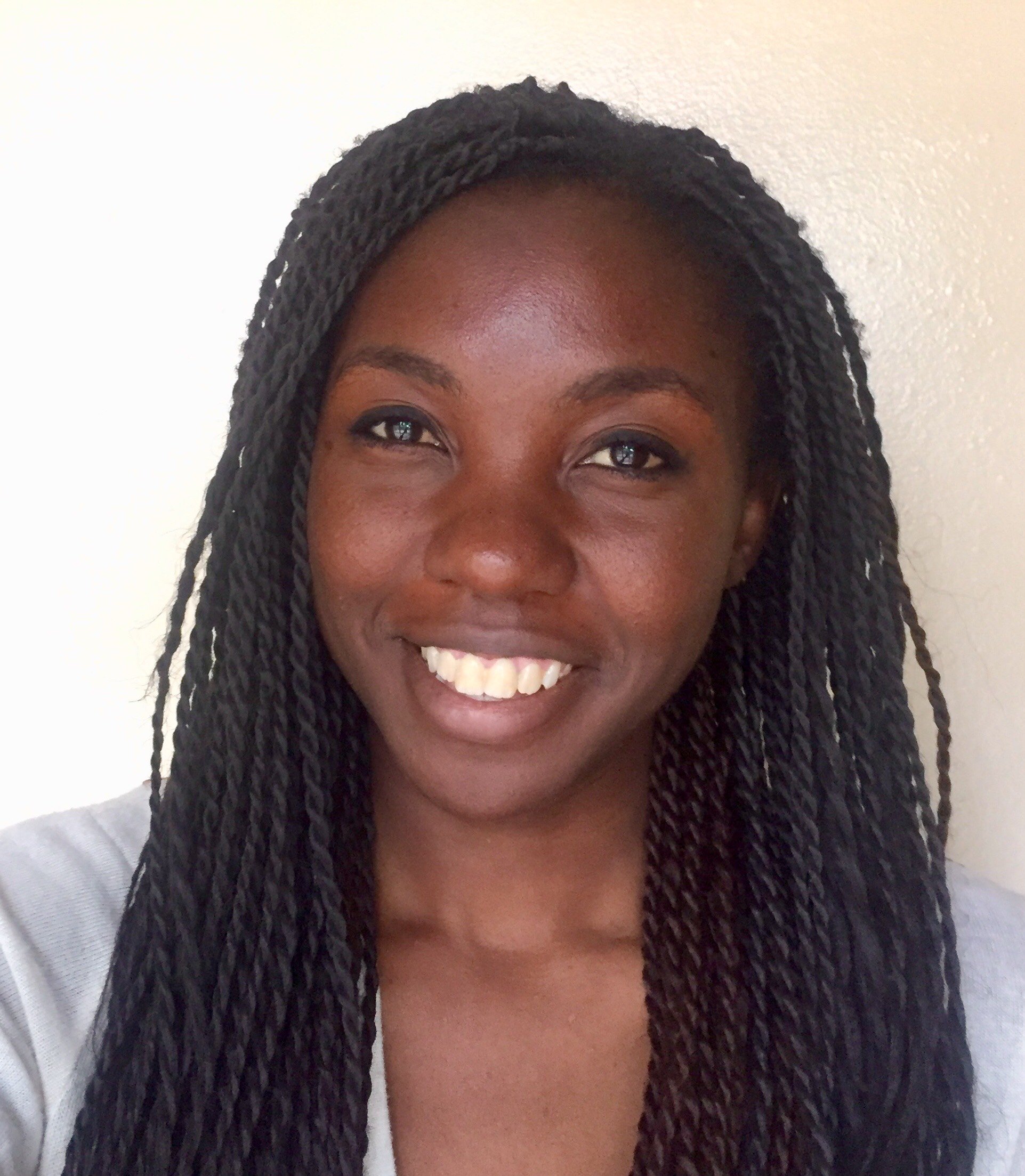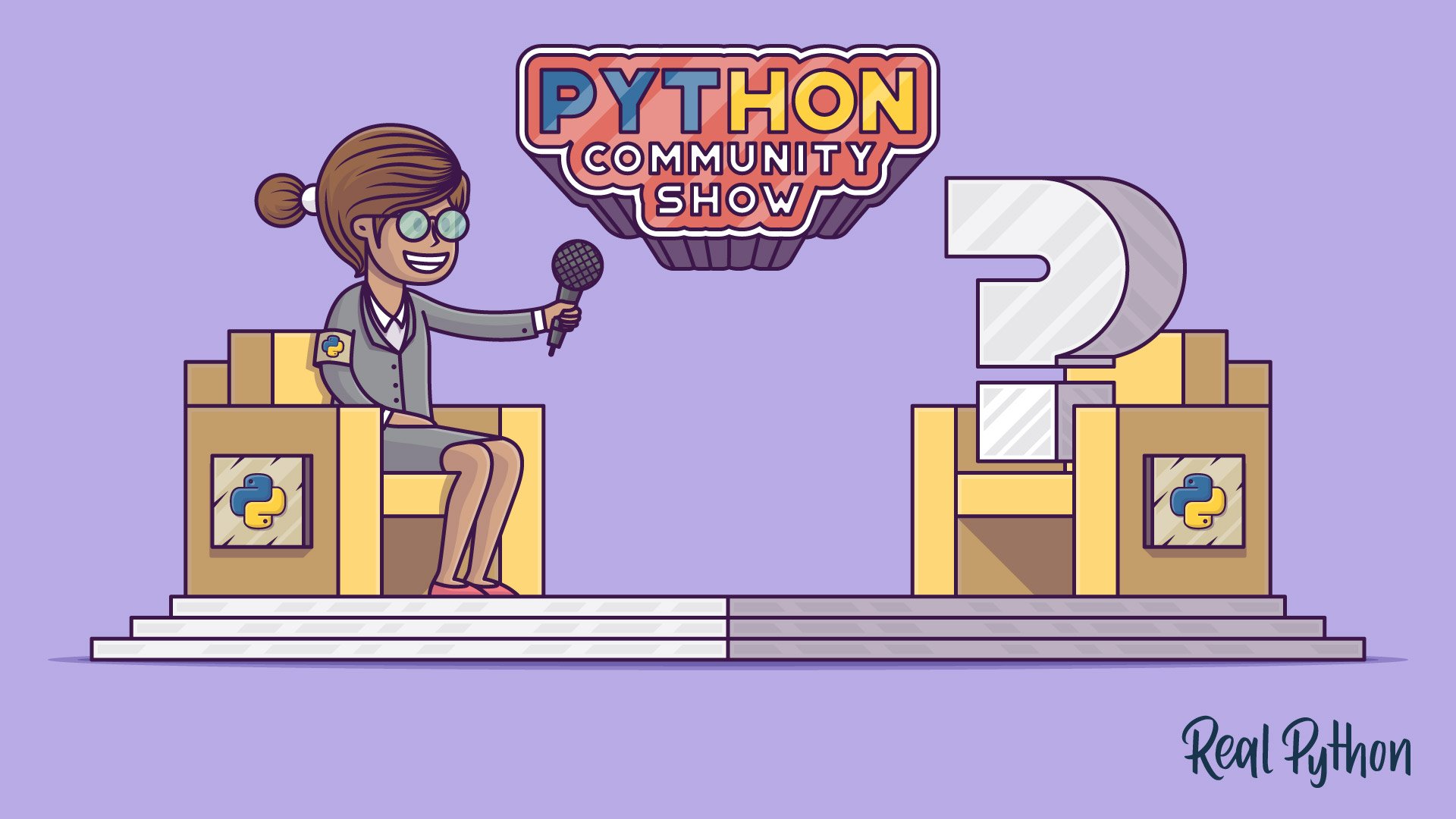Interview conducted in 2019: Some details—such as the guest’s role or references to new developments—may have changed since this conversation took place. If you’re looking for more voices from the Python world, then browse the community topic or use the site search. If you’re looking for fresh conversations, then tune in to the Real Python Podcast.
We are joined today by Marlene Mhangami. Marlene is a passionate Pythonista who is not only using tech to facilitate social change and empower Zimbabwean women but is also the chair of the very first PyCon Africa. Join me as we talk about her non-traditional start in tech, as well as her passion for using technology to create social change for good.
Ricky: Welcome, Marlene! I’m so glad you could join me for this interview. Let’s start with the usual first question. How’d you get into programming, and when did you start using Python?

Marlene: Well, my background is in molecular biology, so in college, although I had some interaction with code, it wasn’t really something I used regularly. I’ve always been interested in technology and the impact it has on the world, but growing up I didn’t really have anyone to introduce me to the concept of coding. We had one computer that we shared in my house, and my brothers were super into gaming. They were on it all the time.
In high school, I took a computer class, but my teachers, who I’m sure were really nice people, didn’t go much further than the basics of using Microsoft Office and having us memorize names of different parts of hardware. So, in general, I focused more on life and physical sciences, and I’m still really interested in those fields today.
I studied for a bit in the United States for college, and I remember coming home one summer and being really aware of how different Zimbabwe was from the U.S. From really small cultural differences like how people address conflict (which is something I’m still trying to figure out with my US friends) to much more impactful things like access to knowledge and education.
I decided I wanted to start being more involved with my local community, and for some reason, I decided that I wanted to leverage technology to help me do that. I also had a really vivid dream that made me re-evaluate what I was doing with my life.
After googling around and actually organizing a meetup, I got introduced to one of my co-founders, Ronald Maravanykia, who was at the time running a Django girls workshop in Harare. He introduced me to Python as a great educational tool for teaching programming to people who don’t have a computer science background. That was almost three years ago, and I’m super grateful Python ended up being the language I chose to focus on. It’s really great!
Ricky: As a Zimbabwean, you are passionate about empowering Zimbabwean women in tech and helping today’s young girls pursue a career in tech. So much so that you are the programs director at the non-profit ZimboPy?
Marlene: Yes, as I mentioned earlier, using technology to create social change for good is something that’s consistently at the forefront of my mind. My co-founders and I decided to create ZimboPy as a way to give girls in Zim access to knowledge and experiences they wouldn’t necessarily get anywhere else in the country.
I think for me, the end goal is to create a model where we introduce girls to programming, and if they enjoy it, offering them a pathway to get jobs in the field. The tech world is not perfect, but unlike most fields, there are ways that you can by-pass traditional gatekeepers and be successful regardless of whether or not you have the privilege of receiving formal higher education.
We are still a small non-profit, and I’m learning new things every day, but we’ve had some great success stories that give me so much hope! Also, our mentorship weeks, where we introduce girls to women who are doing incredible things in the field and help them build something new, are my favorite thing to do all year! We’ve had incredible women like Ashley McNamara and Emily Freeman speak. It’s always so much fun!
Ricky: You are one of the 13 members of the Python Software Foundation’s (PSF) Board of Directors. How did you come to be involved with the PSF, and what do you think is the biggest challenge as we look towards 2020 and beyond?
Marlene: I’m actually up for re-election this year, so hopefully, I’ll still be on the board for 2020. I really had such a positive experience with it so far!
I was actually introduced to the PSF by Lorena Mesa, who was volunteering to speak at one of our ZimboPy mentorship weeks in early 2017. She was on the board at the time, and we spoke about it around the time when elections were coming up. She really felt that I would be a great addition to the board. At that time, no one from Africa had ever held a seat, so she was super encouraging.
I remember looking through the list of the nominees and thinking that I didn’t belong there. I had done some work with the local Python community in Zimbabwe, but I felt really intimidated by everyone’s profiles. I ended up agreeing to let Lorena nominate me, mainly because I had nothing to lose, haha! Surprisingly, I was voted in, which I think is purely a testament to the Python community’s commitment to diversity and global representation.
So many changes have taken place in the last few years: the formation of the steering council, the exponential growth of PyCon, and the spread of the language globally. All of these are things we’ve been able to discuss as a board.
I think defining the biggest challenge is tricky because it genuinely depends on each individual’s perspective. There are Directors on the board who are infinitely more technical than I am, and they can probably speak to all sorts of challenges on the future of Python from a more technical perspective.
For me, my focus is to help the growth of Python and its community to be as inclusive and representative as possible. I recently became the board’s communications co-chair, along with Lorena, and have been working with the blogging team. I’d like to see an increase in the representation of voices from communities around the world, maybe one day having blog posts and content on the official site in various languages.
All of these are things I feel are important and a challenge that we have to tackle well.
Ricky: I had the good fortune to meet you in person at PyCon 2019. It was your first PyCon (mine, too). How was your experience there? What was the standout moment for you?
Marlene: I genuinely loved Pycon 2019, and of course meeting you, Ricky, and the rest of the Real Python team! I’ve been to several PyCons around Africa and other parts of the world, but PyCon US is definitely a unique experience.
One of my favorite things about the conference was how friendly and laid back everyone was. I’d literally pass by people that I follow on Twitter, who have done amazing things, and they’d just be sitting there, eating a sandwich! I’m being a little funny here, but honestly, everyone was so welcoming and fun. I still can’t fully wrap my head around it.
I had so many standout moments, but I think I’d say Sha Wallace and Jessica Meckeller’s joint keynote was out of this world. I was tearing up because it’s such a great example of how we as a community can create positive change! I took away so many notes from that talk that I’d like to implement here in Zimbabwe.
This is an additional thing, I know, but I’d also like to say that I had so many standout moments outside the convention center, like having dinner with people from around the world and going to the local art gallery and trying bubble tea, also generally just wandering about the city. I had the best time, and I’m really looking forward to Pittsburg in 2020!
Ricky: If my memory serves right, at the end of PyCon, Microsoft and Adafruit donated a bunch of Circuit Playground Lunchbox Kits for you to take back to the girls you mentor in Zimbabwe. I’m curious if you managed to put them to use yet? Or what your plans are, outside of using them to teach them how to write some CircuitPython?
Marlene: Yes! That was another standout moment (to add to the twenty others above, haha). I got to chat with Nina Zakharenko and Katni from Adafruit, who are some of the loveliest human beings I’ve ever met! We had dinner together at some point and afterwards, they decided to donate the kits for me to bring back home and use for our ZimboPy programs.
I only recently got back to Zimbabwe, and I’ve started to play around with the kits myself. The plan at the moment is to host a workshop specifically centered around CircuitPython to show the girls that they can be playful and have fun while they code. I’m super pumped about it!
I was also talking to Kat about the potential of me hosting a tutorial at PyCon Africa with the Adafruit boards, similar to what she was demoing at the Microsoft booth. If I feel confident enough to do it by July, I think that’s something attendees at the conference should look out for!
Ricky: As if all the community work you do already isn’t enough, you’re also the organizer of the very first PyCon Africa! How’s the planning coming on? Can you share any details?
Marlene: I’m really excited that we’re in the final stages of planning for the conference. PyCon Africa is the first regional / pan-African gathering of the Python community! We have a great organizing committee, with people who have helped organize PyCons in Nigeria, Ghana, Namibia, Uganda, South Africa, and even the UK, so in that respect, I’ve been really lucky to land on this team.
The response from the global Python community has also been really encouraging. Real Python is actually one of our sponsors, which is amazing. Shout out to you! I think we’re moving in the right direction.
I’m this year’s chair, and although everything is running smoothly so far, I’ve been surprised by how all-consuming the process of planning can feel at times. Each time I look up it’s as if 3 months have passed! At PyCon US, I was speaking to a few other regional conference organizers and was glad to find I wasn’t the only one that felt like this. It can feel pretty overwhelming sometimes, but for the most part, I’m happy with the progress we’ve made and optimistic that we will put on a great event!
The conference is going to be held in Accra, Ghana, this year from August 6 to 10. We’re looking for sponsors, and there’s an option for individuals to buy a sharing ticket to sponsor a Pythonista who doesn’t have the means to buy their own ticket! You can find out more info on all this on our website: africa.pycon.org
Ricky: Now for my last questions. What else do you get up to in your spare time? Any other hobbies and interests, aside from Python and coding?
Marlene: I really enjoy long walks on the beach, haha. I’m joking, but I also genuinely do! I’ve been getting into running recently, and I’m hoping to try to get myself into good enough form to do a marathon at some point.
I also really like painting, but not in a cultured, cool way. I sometimes just like to paint and draw as a way to relax. Meditation and gratefulness journaling is also something I like to do each morning, as a good way to start the day.
It was an absolute pleasure speaking to Marlene. If you want to attend PyCon Africa, tickets are still available. If you want to find out more about Marlene, or reach out to her and discuss any of the amazing things she is doing, then you can find her on Twitter.



